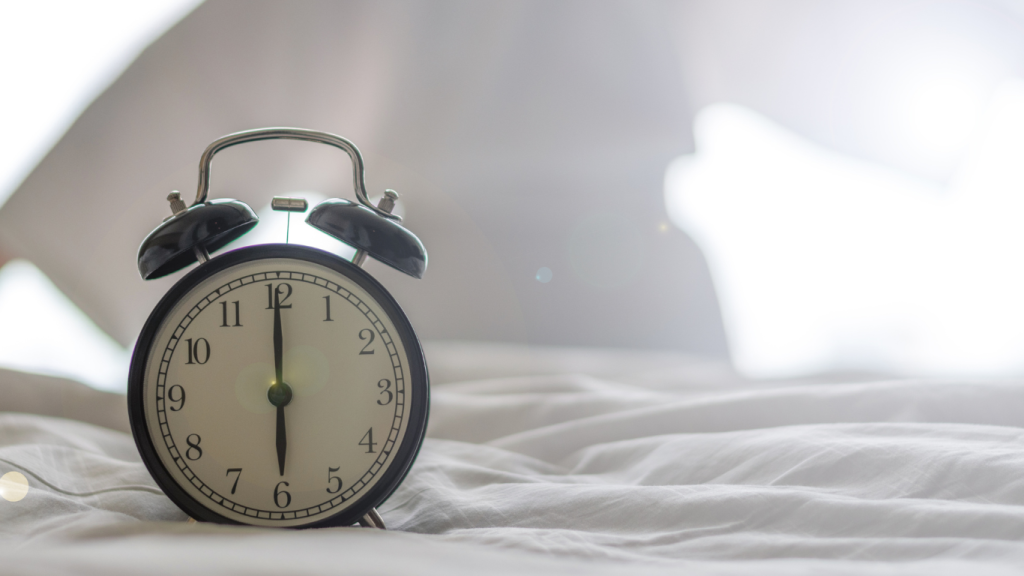Are you constantly battling fatigue, struggling to stay alert during the day, or tossing and turning at night?
Many of us lead hectic lives, often sacrificing sleep and neglecting our body’s natural rhythms. This disruption can lead to a host of issues, including fatigue, mood swings, and difficulty concentrating.
Your body’s internal clock, also known as your circadian rhythm, might be out of sync.
Our bodies operate like clocks on 24-hour cycles—called our circadian rhythm. These clocks are internal. Every organ has a clock and every cell has a clock.
Blue light is the primary signal that sets the circadian rhythm in the master clock located in the brain. This influences the function of just about every cell and organ within the body, from hormone production to gastric secretions to neurotransmitter levels to cellular repair and more.
There are simple steps you can take to get back on track and optimize your health.
Maintaining a consistent sleep schedule is crucial for regulating your body’s internal clock which is one part of creating a healthy body!
Tips to Sync Your Lifestyle with Your Biological Clock:
- Wake Up and Go to Bed at the Same Time: Aim to wake up and go to bed at the same time each day, give or take 30 minutes. Consistency in your sleep schedule improves sleep quality, which means more energy during the day
- Get Light Early: Exposure to natural sunlight in the morning helps set your internal clock for the day. Even on a cloudy day, the blue morning light is important part of setting yoru clock. Spend some time outdoors or open your windows to let in the light as soon as you wake up! The light has to hi your eyes
- Avoid Large Meals Before Bed: Eating heavy, fatty meals close to bedtime will disrupt digestion and lower sleep quality. Your last meal should be at least three hours before bedtime to allow time for digestion. It takes about 5 hours to digest the food! Sleeping is for repair not digestion.
- Warm Evening Lighting : In the evening, switch off all the overhead lights and opt for lamps with red or yellow light bulbs. Bright lights in the evening will suppress melatonin production, making it harder to fall asleep.
- Limit Screen Time Before Bed: Blue light from electronic devices like smartphones and laptops can interfere with your body’s natural sleep-wake cycle. Stop using electronics at least an hour before bedtime or use blue blocking glasses
Incorporating just one or two of these simple tweaks into your daily routine can help regulate your hormonal patterns, improve sleep quality, and enhance overall well-being.
Syncing your lifestyle with your body’s natural rhythms requires minimal effort and spendings, but yields significant long-term benefits.
If you’re interested in learning more about these strategies or need personalized advice, reach out!
Understanding the basics of biology is key to health!
Don’t wait for a disease, be proactive by following the simple fundamental principles for health!
Adriana


